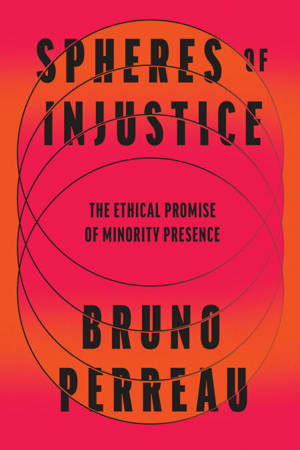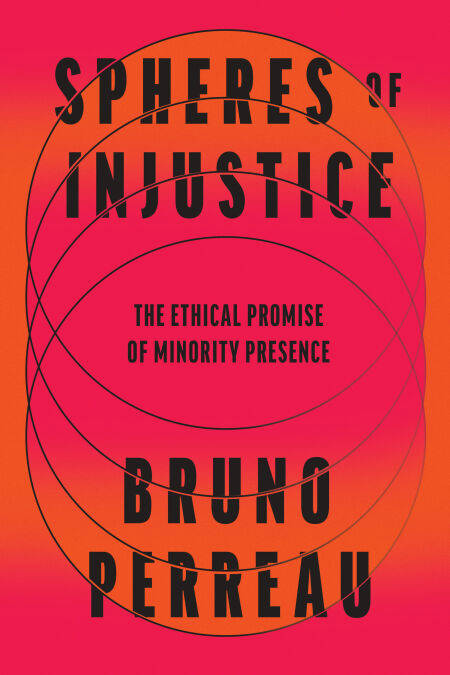
- Afhalen na 1 uur in een winkel met voorraad
- Gratis thuislevering in België vanaf € 30
- Ruim aanbod met 7 miljoen producten
- Afhalen na 1 uur in een winkel met voorraad
- Gratis thuislevering in België vanaf € 30
- Ruim aanbod met 7 miljoen producten
Zoeken
€ 33,51
+ 33 punten
Omschrijving
How minority issues concern all of us, and why a new conception of justice grounded in solidarity can revitalize democracy.
How can the rights of minorities be protected in democracies? The question has been front and center in the US since the Supreme Court’s repeal of affirmative action. In Europe too, minority politics are being challenged. Reactionary groups abuse the notion of minority by demanding to be protected just as minorities are, while the notion of a “protected class” risks encouraging competition among minorities. Also, in the age of algorithms, the very concept of minority is being transformed—the law of averages is replacing that of the greater number. In Spheres of Injustice, Bruno Perreau shows how can we revitalize minority politics and make the fight against discrimination beneficial for all.
Perreau proposes thinking about minority experiences relationally. How one person is governed has a direct impact on how another is. Legal provisions that protect gender can be used to protect race; those that protect disability can protect age, sexual orientation, or class, and so on. This is what Perreau calls intrasectionality, a new concept and an innovative legal strategy, which builds on the idea of intersectionality. This book takes up many concrete cases (discrimination at work and access to healthcare; new techniques of deliberation; innovative teaching practices; etc.) and connects them to the history of minority movements, the sociology of violence, and contemporary theories of justice.
Updating one of the greatest classics of political theory, Spheres of Justice: A Defense of Pluralism and Equality by Michael Walzer, Perreau shows that minority presence can teach new forms of responsibility to one another and that the resonances between experiences of injustice—much more than a belief in shared moral principles—ground a political community.
How can the rights of minorities be protected in democracies? The question has been front and center in the US since the Supreme Court’s repeal of affirmative action. In Europe too, minority politics are being challenged. Reactionary groups abuse the notion of minority by demanding to be protected just as minorities are, while the notion of a “protected class” risks encouraging competition among minorities. Also, in the age of algorithms, the very concept of minority is being transformed—the law of averages is replacing that of the greater number. In Spheres of Injustice, Bruno Perreau shows how can we revitalize minority politics and make the fight against discrimination beneficial for all.
Perreau proposes thinking about minority experiences relationally. How one person is governed has a direct impact on how another is. Legal provisions that protect gender can be used to protect race; those that protect disability can protect age, sexual orientation, or class, and so on. This is what Perreau calls intrasectionality, a new concept and an innovative legal strategy, which builds on the idea of intersectionality. This book takes up many concrete cases (discrimination at work and access to healthcare; new techniques of deliberation; innovative teaching practices; etc.) and connects them to the history of minority movements, the sociology of violence, and contemporary theories of justice.
Updating one of the greatest classics of political theory, Spheres of Justice: A Defense of Pluralism and Equality by Michael Walzer, Perreau shows that minority presence can teach new forms of responsibility to one another and that the resonances between experiences of injustice—much more than a belief in shared moral principles—ground a political community.
Specificaties
Betrokkenen
- Auteur(s):
- Uitgeverij:
Inhoud
- Aantal bladzijden:
- 380
- Taal:
- Engels
Eigenschappen
- Productcode (EAN):
- 9780262382991
- Verschijningsdatum:
- 7/04/2025
- Uitvoering:
- E-book
- Beveiligd met:
- Adobe DRM
- Formaat:
- ePub

Alleen bij Standaard Boekhandel
+ 33 punten op je klantenkaart van Standaard Boekhandel
Beoordelingen
We publiceren alleen reviews die voldoen aan de voorwaarden voor reviews. Bekijk onze voorwaarden voor reviews.











